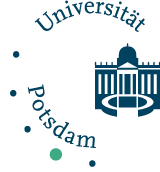Digital Transformation at the Local Tier of Government in Europe: Dynamics and Effects from a Cross-Countries and Over-Time Comparative Perspective (DIGILOG)
Project overview
Project title: Digital Transformation at the Local Tier of Government in Europe: Dynamics and Effects from a Cross-Countries and Over-Time Comparative Perspective (DIGILOG)
Research object/goal: The project analyses the state of implementation and the effects of digital transformation at the local level in Europe on a cross-countries and comparative basis. On the one hand, the focus is on the dynamics of the digital transformation, on the other hand on the intended and unintended effects of digitalization.
Heads of project: Prof. Dr. Reto Steiner (ZHAW Zurich University of Applied Sciences), Prof. Dr. Sabine Kuhlmann and Prof. Dr. Isabella Proeller (University of Potsdam)
Project team: UP: Justine Marienfeldt and Jakob Kühler, ZHAW: Claire Kaiser, Andreas Weiler, Jakob Marquardt, Jonathan Gerber, Jana Machljankin
Cooperation partners: Prof. Dr. Renate Meyer (Vienna University of Economics and Business), Tobias Polzer
Duration of project: 2022 to 2025
Funded by: Swiss National Science Foundation (SNSF) and German Research Foundation (DFG), 1.1 million euros
Digital transformation constitutes one of the most important innovations at the local level and is expected to reshape local service delivery, public administration, and governance in Europe fundamentally. In many countries, local government is the most significant tier of public service delivery, ensuring proximity to citizens and being a key player in digital transformation. This collaborative research project systematically analyzes the state of implementation and the effects of the digital transformation at the local government level in Europe in a cross-countries and over-time comparative manner.
Its first main research questions address the dynamics, scale, and pace of digital transformation in European local government, i.e., to what extent there has been radical/rapid revolutionary or gradual/slow evolutionary change and how and why these dynamics differ when considered from an international and inter-municipal perspective.
The second main research question addresses the (intended and unintended) effects of digitalization on local self-government in Europe in terms of outputs (service delivery, organization, processes, and human resources), outcomes (performance and accountability), and impacts (citizens’ acceptance, governance, new cleavages). The independent variables include explanatory factors on the macro-level (institutional properties of the local government systems), meso-level (internal organizational arrangements and procedures), and micro-level (actor strategies, interests, motives).
The project will generate coherent data for a systematic comparison to synthesize research outcomes using methodological triangulation, i.e., quantitative and qualitative methods. It will take the form of a regular and automated quantitative survey of all local authorities in 46 European countries (members of the Council of Europe), based on web crawling and machine learning techniques, and qualitative research, namely case studies in selected European countries.
The project is jointly led by Prof. Dr. Sabine Kuhlmann and Prof. Dr. Isabella Proeller (University of Potsdam) as well as Prof. Dr. Reto Steiner (ZHAW Zurich University of Applied Sciences) and Prof. Dr. Renate Meyer (Vienna University of Economics and Business). Justine Marienfeldt is responsible at the Chair of Political Science, Public Administration and Organization. The project, which will run for three years (2022-2025), is funded with 1.1 million euros by the Swiss National Science Foundation (SNSF) and the German Research Foundation (DFG).

Contact
Campus Griebnitzsee
August-Bebel-Straße 89
House 7
Room 3.07.218
14482 Potsdam



